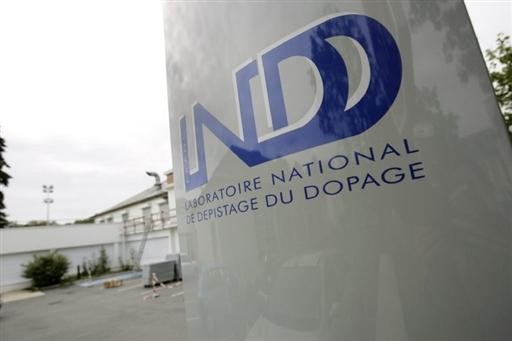Landis suspects hidden agenda
By Anthony Tan The argument that this year's Tour de France winner has a naturally high level of...

By Anthony Tan
The argument that this year's Tour de France winner has a naturally high level of testosterone appears to have gone. So has the claim that the test used to detect testosterone is unreliable. Now, it appears Floyd Landis believes one or both of his samples was tampered with.
In an interview with CNN's Chris Lawrence last Monday, August 7, Landis appears to have accepted the test results that, according to the French national doping laboratory in Châtenay Malabry, found not only an elevated testosterone:epitestosterone ratio from his Stage 17 urine sample, but the presence of exogenous (synthetic) testosterone.
What he doesn't accept - for the time being, at least - is that there's a problem with the test, despite his personal physician Dr. Brent Kay claiming "a long list of potential problems" in an earlier interview with CNN's Larry King Live on July 28; a little over one week ago.
Nor does Landis accept that a member of his former Phonak team - who dismissed him last Saturday after he returned a positive B sample, confirming the earlier "adverse analytical finding" found in his A sample - put synthetic testosterone into his system, on purpose or by accident.
"I'd have a hard time accusing someone from my team doing that," he said. "I trust them, I am certain that is not the case. As to what may have happened, I can't say which is more likely, but the circumstantial evidence points to some kind of agenda."
"There's a myriad of reasons why this test could have made a mistake, including, which appears to be the case at this moment, some other agenda with the people doing the test. They've broken their own rules in making this public from the beginning, and forced me to make these statements as to why this may have happened," said Landis.
Get The Leadout Newsletter
The latest race content, interviews, features, reviews and expert buying guides, direct to your inbox!
CNN later invited doctor Sanguy Gupta to explain the test used which may see the first person in the history of the sport to be stripped of his Tour de France title. Dr. Gupta said the secondary test used to detect exogenous testosterone is separate from the testosterone-epitestosterone test, and is very reliable.
"It's almost like a fingerprint," said Dr. Gupta, "as the experts have explained it to us - in actually finding a specific carbon atom that is only present in synthetic testosterone, and comparing that to natural testosterone.
"It costs around 300 [US] dollars, and that is why it is not used as a general screening test. They [Châtenay Malabry lab] the found it was present in the sample, and was present in the body at the time of the particular test," Dr. Gupta said.
Landis was asked if he could understand if people 'had a hard time buying' his hidden agenda theory, after similar stories have being thrown around in baseball and track and field, as well as in cycling. After L'Equipe alleged Landis' predecessor, Lance Armstrong, used EPO to win the 1999 Tour, the seven-time winner denied the allegations on similar grounds.
"Had I just made this up out of the blue, that would be hard to believe," Landis admitted.
"But considering their past and their history and the things that they've done before - and the fact that the UCI admits that there's a problem with the procedure there, and hasn't done anything to fix it - if I just made this up, and had no evidence of that fact, yeah, I think it would be unbelievable, but this is a different story here."
CNN's guest physician Dr. Gupta admitted testosterone, when abused, is "a substance not typically associated with quick bursts of energy, such as might be used in a particular stage of the Tour de France. So that part of the whole equation is a little bit odd," he remarked. It should also be noted that 30 year-old Landis was tested four times before and three times after his Stage 17 sample, all with negative results.
The final question aroused the most emotion in Landis, when asked what it felt like to potentially be the first Tour de France winner to lose his crown as a consequence of doping.
"I tell you what - I'm going to take that I wore on the last day and I'm going to hang it on my wall - because I'm proud of what I did, I won that race with determination and heart, and I think anybody that watched that race will agree with me on that. Everything I did was according to the rules, which is exactly the rest of the race went, and I'm proud of the achievement that I have made."